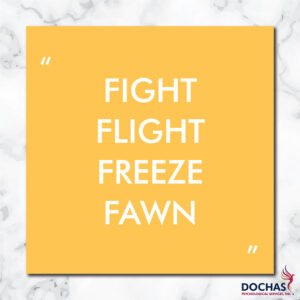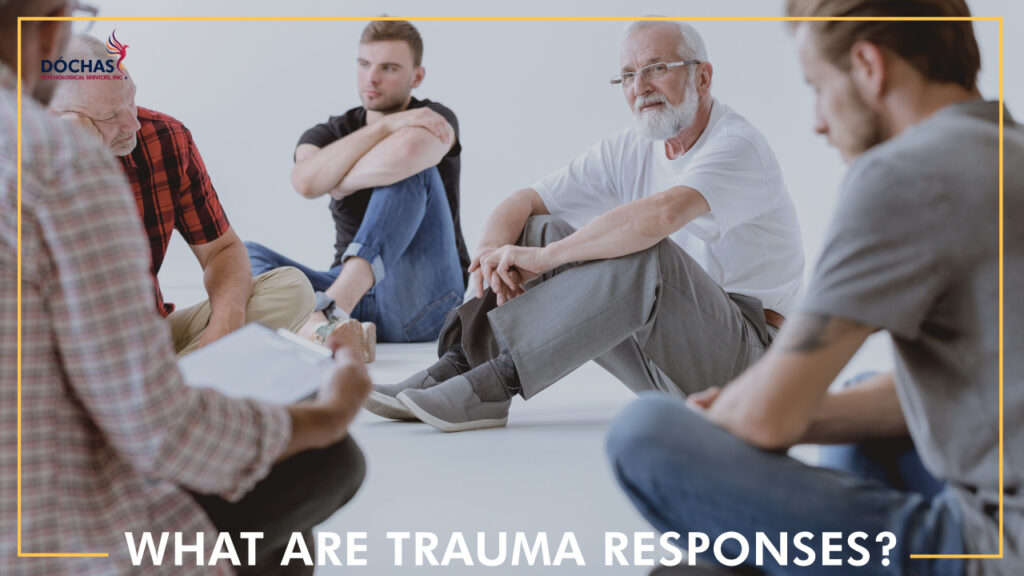Hello! It’s Pooja here on the Dóchas blog, and I’d like to talk about trauma responses. You may have heard the words “trauma response” lately, but aren’t sure exactly what they mean. Well, a trauma response is when an individual encounters a threat, whether real or perceived, and their nervous system responds automatically to protect them. The types of threats can be a single traumatic event or an accumulation of distressing events.

Let’s break down the different ways trauma responses can look like. There are four types of automatic responses that can occur to protect us from feeling the full impact of trauma.
Fight: this response helps us to assert our boundaries and defend ourselves from the threat
Flight: is where we respond by running or escaping physically from the threat or danger
Freeze: is feeling overloaded and completely immobilized by the threat. This can be protective (“if I don’t move it may not detect me.”) Oftentimes this can feel like the only safe option.
Fawn: reflects a specific set of behaviours that are about pleasing or appeasing the threat. This is a fairly new term that has been acknowledged as a trauma response.
When the distressing event has passed, we can encounter challenges when any of these trauma responses become the default way to respond to uncomfortable experiences. For instance, when having a disagreement with someone close to you, you could:
- feel your body could begin to shutdown (freeze)
- verbally or physically lash out (fight)
- decide to walk out and avoid resolving it future (flight)
- ignore your own feelings in order to agree with them (fawn)
While these responses can be protective and helpful, they can also negatively impact how you function in your life over a period of time.
There are ways to address and manage trauma responses. Meeting with a psychologist or counsellor trained with a trauma-informed approach can be beneficial to work through trauma responses and learn tools to manage them.
Here are ways that trauma responses could be addressed with a trained psychologist or counsellor:
Fight: understanding the cost of the “fight response”, redirecting anger and releasing it safely. This can also include developing tools to manage emotional regulation and to express yourself
Flight: understanding the cost that the “flight response” may incur, managing anxiety and flightiness, and developing tools to relax and engage in life at different rhythms
Freeze: understanding the cost of the “freeze response”, managing dissociation and developing tools to manage isolation (especially through relational supports such as therapy, community, and social.)
Fawn: understanding the cost of “fawn response”, managing people-pleasing and control, developing tools to learn your boundaries, about your emotional needs and communicating authentically to others.

If you’d like to speak to a professional as you navigate your trauma responses, one of us on the team at Dóchas would love to provide a helping hand. Reach out to us at 780 446 0300 or by email at info@dochaspsych.com.
About Dóchas Psychological
Dóchas Psychological Services is a well-established and trusted therapy clinic located in Spruce Grove, Alberta. At Dóchas we value the idea that everyone deserves a safe space. Through connection and education, our team works hard to build a trustworthy relationship with each of our clients. It is our goal to create a community for our clients to feel like they belong.
Disclaimer
Information provided through Dóchas Psychological Services blogs or vlogs is meant for educational purposes only. They are NOT medical or mental health advice. You can read more about our disclaimer here.

